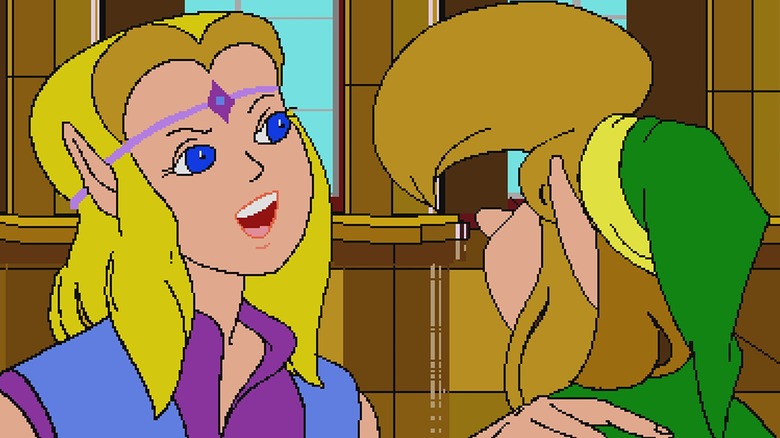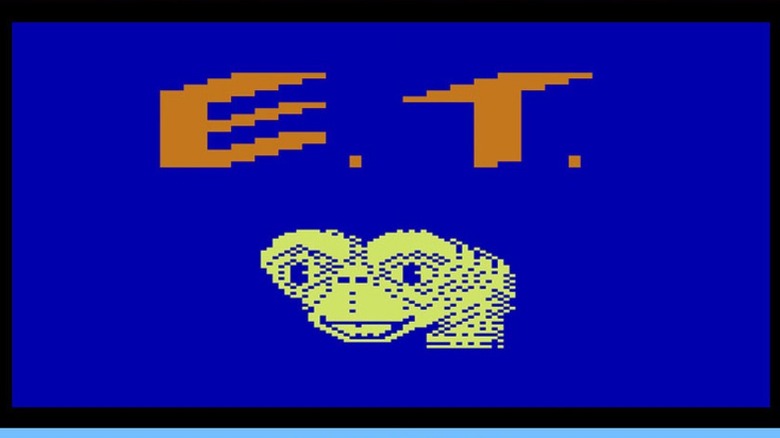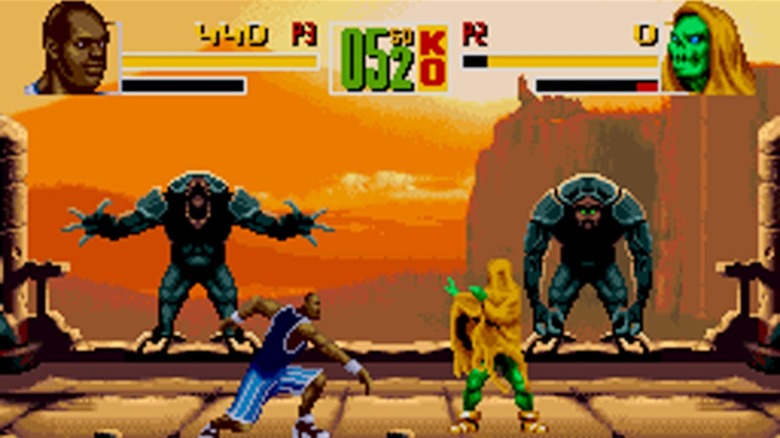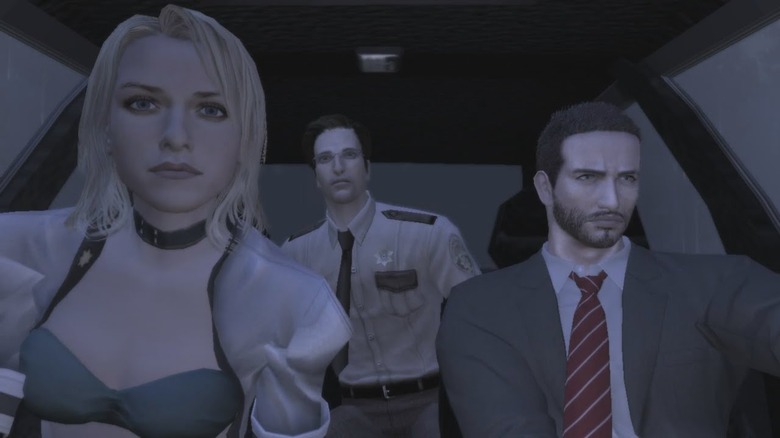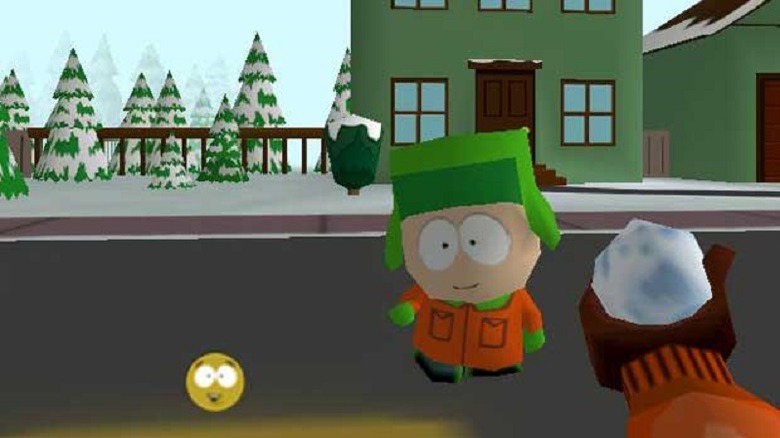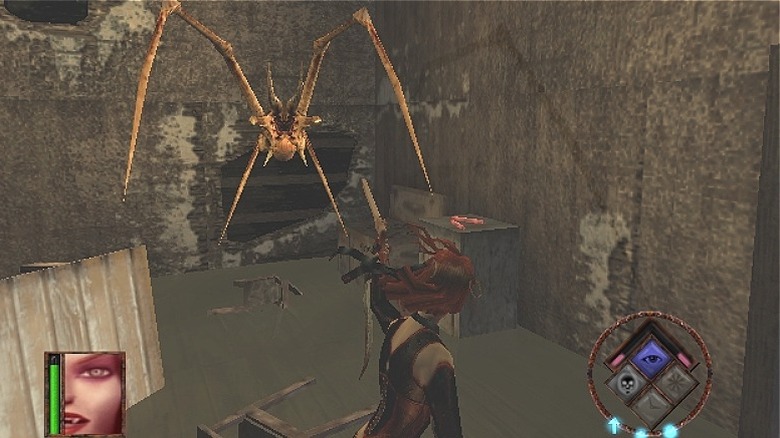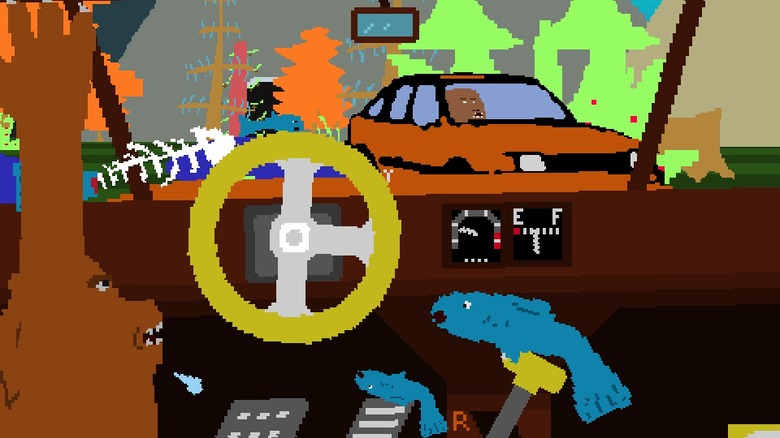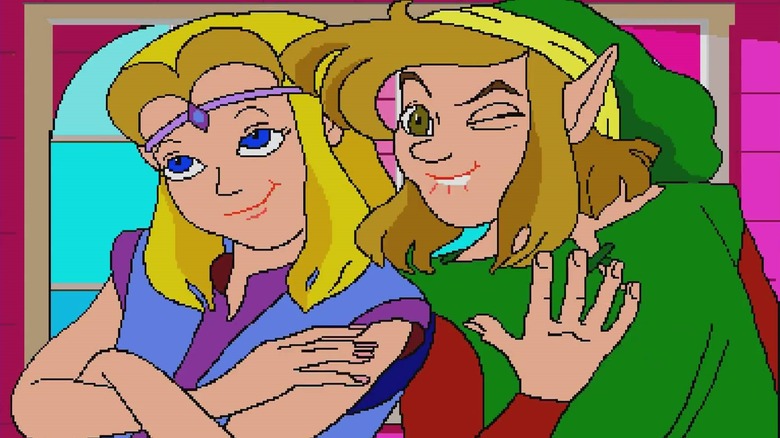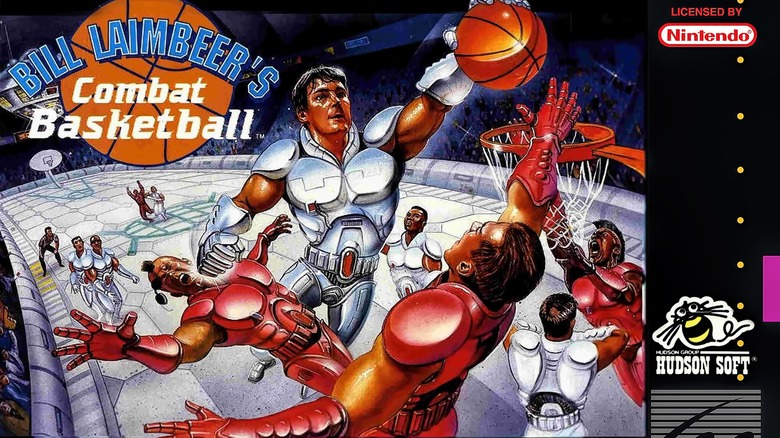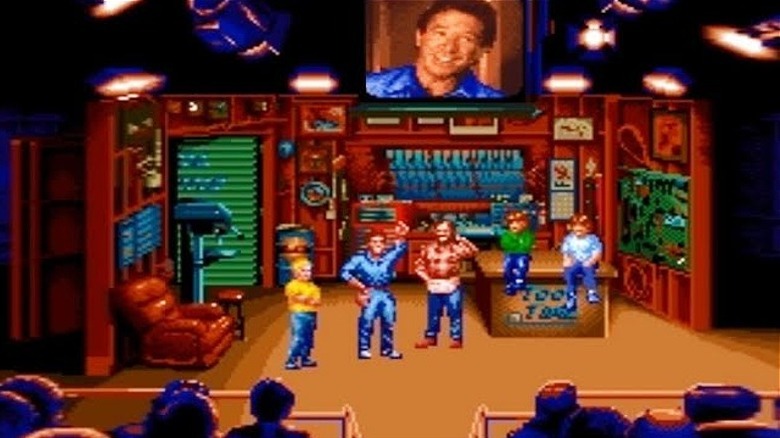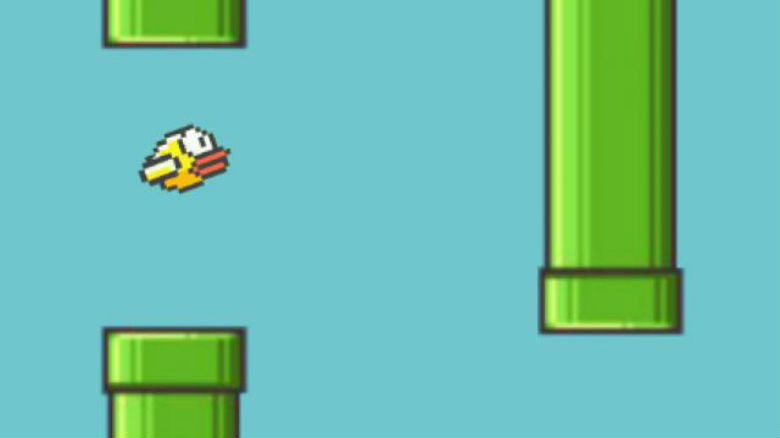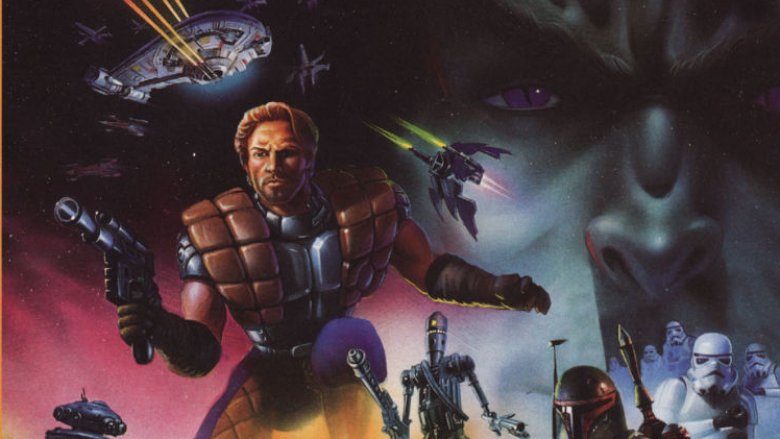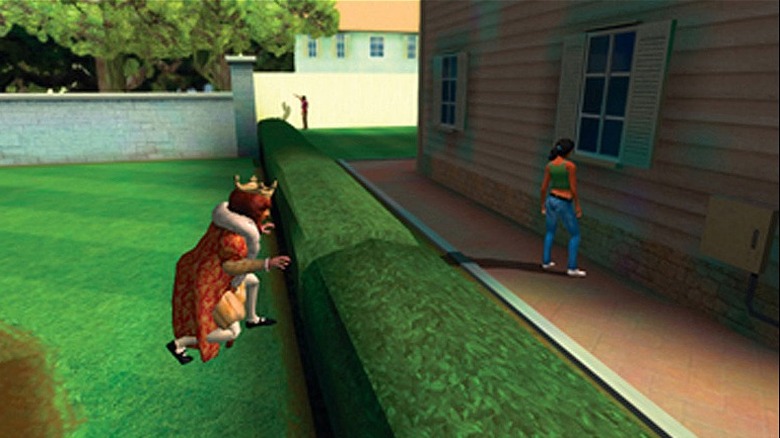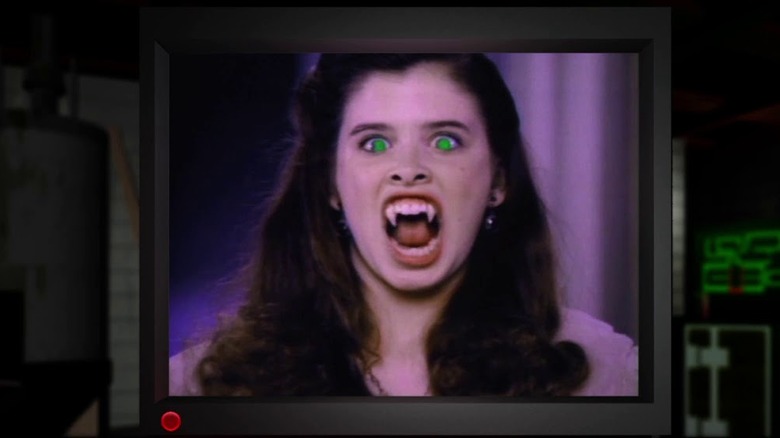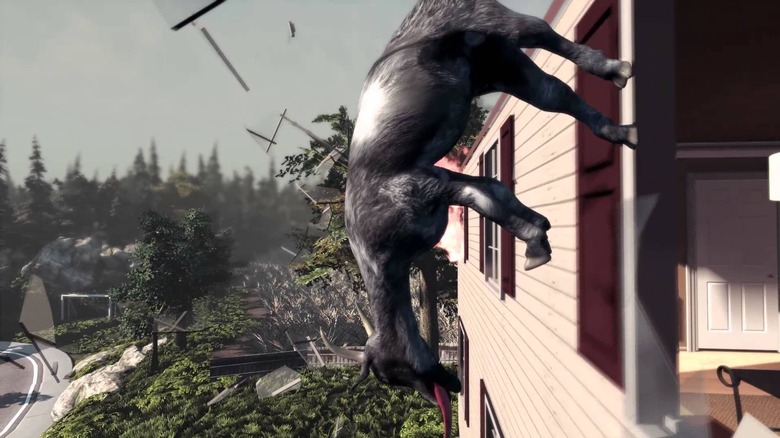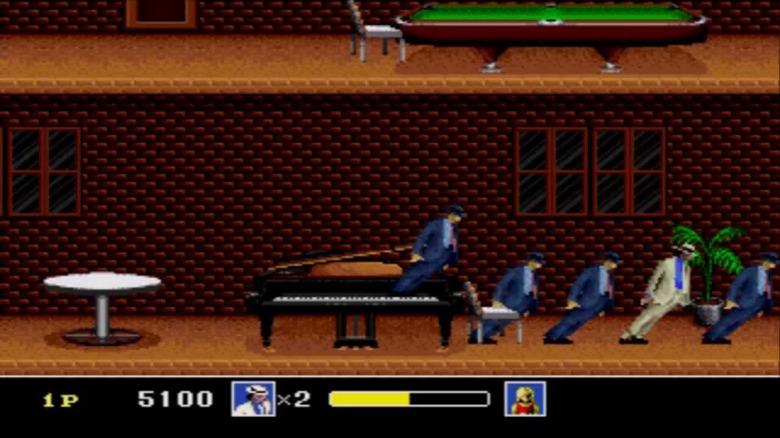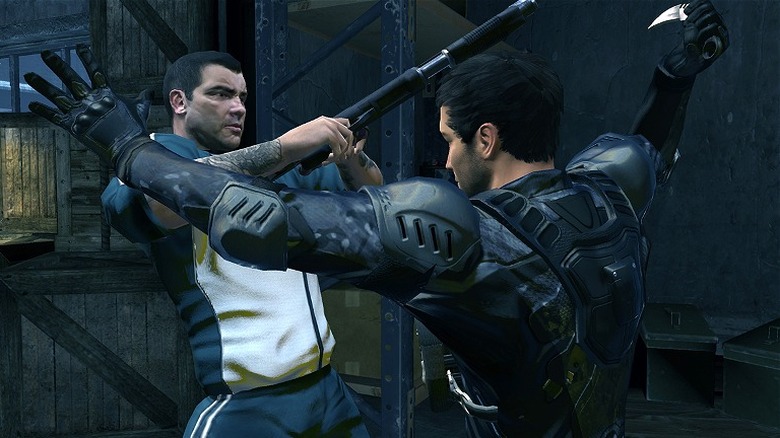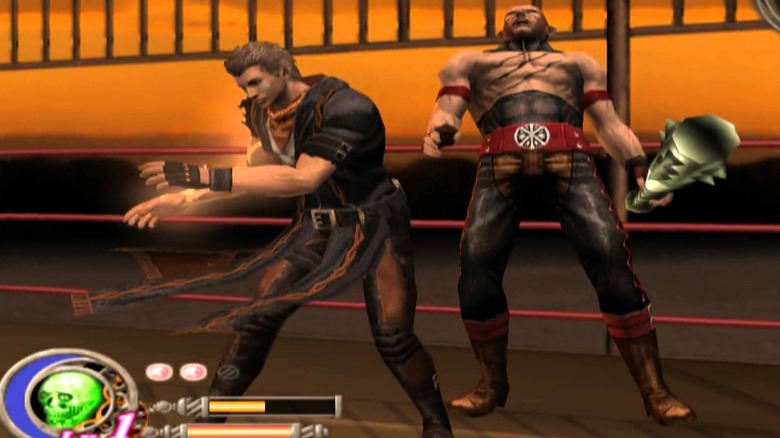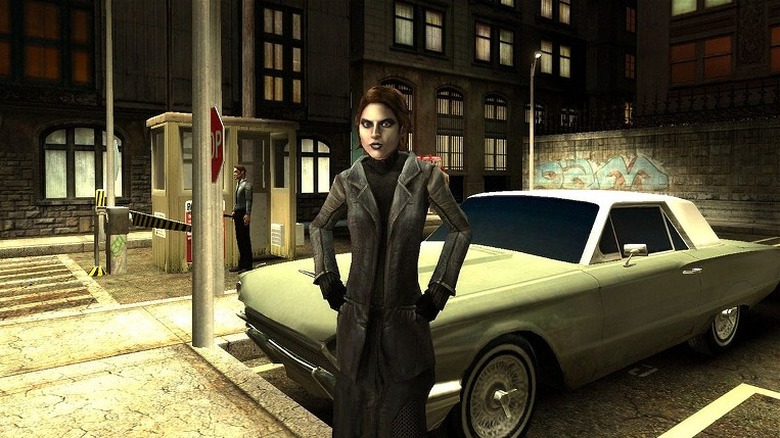Awful Games That Became Cult Classics
There are bad video games, and then there are the truly awful or utterly baffling games. While some are just kind of dull and are quickly forgotten, you could argue that maybe they are the lucky ones. Who wants to be remembered for being bad? Well, some games have no choice. There is something about their strangeness or atrociousness that secures their place in history. Their infamy will live on, and on occasion their fame will surpass that of even good games.
However, some of these titles really hook into people. They get under their skin in one way or another. Suddenly, an affection, or at least a fascination, for them begins to form. The idea of a movie that is "so bad it's good" is a long standing tradition since before video games even got into people's homes. Video games are still lagging behind other elements of culture in terms of awful titles gaining cult status, but it does happen. Some truly bad games have indeed become cult classics. Here are ten of them.
E.T.: The Extra-Terrestrial
When you hear "bad video game," the odds are the first thing that comes to mind is "E.T.: The Extra-Terrestrial." It's story is so infamous that even the BBC covered its failure. You probably know some of the story beats at this point. Atari tried to rush the game out with only five weeks of development. It was a colossal failure, but it's also one of the most important games of all time, because it is considered largely responsible for helping to bring Atari to financial ruin.
What really helped to turn "E.T." into a cult classic, though, is the story of what happened to it after it failed. For years, it was reported that a bunch of copies of the game had been buried in a landfill in New Mexico. It was rumor, perhaps urban legend, but people were so fascinated by the possibility that "E.T." had ended up in a landfill that it fueled speculation and fervor. They even made a documentary about it where they actually went to a landfill and found, yes, a bunch of copies of the game had been buried in a desert. Who isn't fascinated with trying to play a game so terrible it ended up in a landfill?
Shaq Fu
Shaquille O'Neal was a great basketball player. People loved to watch him on the court. He was truly a dominant center, and he had some personality to match. However, Shaq-mania got a little too high in the '90s. He released a rap album. He starred in two terrible movies, "Kazaam," where he played a rapping genie, and "Steel." Then, there was "Shaq Fu."
You know a game has a cult following when Know Your Meme has a page for it that literally uses the words "cult following." It would be one thing for Shaq to be the focal point of a basketball game, but "Shaq Fu" has basically nothing to do with basketball. It's a fighting game that begins with Shaq going to a dojo in Tokyo. It's like "Mortal Kombat," but with Shaq, and also way worse than "Mortal Kombat." In its 100th issue, Nintendo Power declared "Shaq Fu" the third-worst game of all time, stating it was "not possible to come up with a worse idea than this." When you combine a bad idea with an iconic celebrity, you get — guess what? — a cult following.
Deadly Premonition
When you're talking recent games that are generating a "so bad, it's good" buzz, 2010's "Deadly Premonition" is one that comes up a bunch. The game is considered pretty much absurd from top to bottom, with a lot of critics evoking "Twin Peaks" to describe it. However, while "Twin Peaks" had legendary director David Lynch and talented actors, "Deadly Premonition" does not have that level of prestige.
In addition to being baffling and hard to follow, the is buggy and the dialogue was poorly recorded. The plot takes constant twists and turns, making a murder investigation somehow into an increasingly convoluted supernatural affair. Still, something about "Deadly Premonition," even with all its faults, grabbed people. It was terrible, yes, but in a fascinating way. So fascinating, in fact, that "Director's Cut" of the game has been released that builds upon its scattershot narrative in fun new ways.
South Park
Now, over the years there have been a few video games based on the iconic Comedy Central cartoon. This was the first one, though, and it was released in 1998 when the show was just finding its footing. That makes the game's existence feel even more like a rushed cash-in, and the "quality" of "South Park" seems to back that up. GameSpot's review of the PlayStation version of the game (which gave it a 1.4 out of 10), stated simply, "'South Park' is definitely one of those games that is bound to come up when you start thinking about the worst game you've ever played." It's cheap-looking and barely has anything to do with the show. It's a generic first-person shooter with the trappings of "South Park."
However, it's still a "South Park" game, and that is a show with a deeply devoted fan base. Most Comedy Central shows last a couple seasons at best, but "South Park" has been around for nearly two decades at this point. Anything related to "South Park" is going to develop a cult following of some sort. This particular one is for one of the few misfires in the entire franchise.
BloodRayne
If you make a bad video game, the least you can do is make it completely bonkers. "BloodRayne" certainly took that route. It's a game about a half-vampire woman who fights vampires and other nasty creatures. As Giant Bomb says succinctly, "The 'BloodRayne' franchise features supernatural violence, bizarre plots to destroy the world, and a focus on overt gore and the sexuality of its female protagonist." Yes, they said "franchise." Even though "BloodRayne" is a lousy game, it still quickly developed a cult following.
How did the devs make that happen? With plenty of violence and glamor, of course. The game is extremely gory, and there is a cheat code you can use to hack off heads and limbs with every attack. Then there is the way they treat their bombshell vampire hunter, Rayne. In fact, to promote "BloodRayne 2," she was featured in a real-world "Playboy" pictorial. Despite the game's jankiness, it inspired a movie trilogy directed by the famously inept Uwe Boll. Given the quality of the game, that seems fitting.
Enviro-Bear 2000
In truth, Justin Smith, the man behind "Enviro-Bear 2000," likely knows the game is bad. One look at the quality of the graphics makes that clear. Also, it's a game about a bear driving a car to collect fish and berries. It was also designed to be hard, at times ridiculously so. Kotaku called it "an exercise in absurd controls and fast-paced action," and that sums it up well.
EnviroBear 2000 is frantic and the rules, and physics, of the game change from level to level. Kotaku also said, "The changing conditions and the difficult control ensure that each round is mounting series of misfortunates that form a wonderful comedy of errors." Yes, that statement includes the word "errors," which feels apt, but also the word "wonderful." After all, even while saying all that, Kotaku was still recommending trying the game out. Not because it's well-made, but because it's fascinating and fun, even with all of the ridiculousness.
Philips CD-i's Zelda games
The Philips CD-i video game console was a straight-up expensive failure. When you look at the console's games, such as "Link: The Faces of Evil" and "Zelda: The Wand of Gamelon," it's not hard to tell why. People love Link and Zelda, but they can only love them ironically in their Philips versions. Since Nintendo had scrapped plans for a CD-ROM gaming console, the company gave Philips the rights to Mario and Zelda and let the company make its own games.
Most regrettably, Philips outsourced the games' cutscenes to a Russian studio that created some truly atrocious animation. That said, those cutscenes are the reason these games are remembered to this day. They were terrible, and it's basically impossible to play them now, at least in their original version. Since people love the world of Zelda so much, though, these games were destined to have a second life on the world of the internet. The animation has even entered the world of meme-dom, meaning that "Link: The Faces of Evil" and "Zelda: The Wand of Gamelon" will live on, even though the Philips CD-i did not.
Bill Laimbeer's Combat Basketball
Sports video games have been huge since pretty much the beginning. The "Madden" series is still beloved, "NBA Jam" remains a cult classic, and people still talk about Bo Jackson in "Tecmo Bowl." However, sometimes video game companies want to try and freshen up the idea of a sports game. That's where "Bill Laimbeer's Combat Basketball" came in.
If you aren't familiar with Bill Laimbeer, he was part of the Bad Boys Detroit Pistons teams of the late '80s and early '90s. Laimbeer was a big man known for being unafraid of contact. That's why the publisher decided to make him the face of "Combat Basketball." The game took place in a dystopian future where Laimbeer ran an ultra violent basketball league. Players wore armor and had to dodge mines and spinning blades. Rolling Stone called it one of the weirdest Super Nintendo games of all-time, describing it as "'NBA Jam' meets 'Bomberman.'" To be fair, if this were just a generic basketball game, with or without Laimbeer, it would have likely been forgotten. "Combat Basketball," however, had a concept that made sure it would live on as a cult classic.
Home Improvement: Power Tool Pursuit!
Why would they make a video game out of the sitcom "Home Improvement?" The show was about Tim "The Toolman" Taylor hosting a TV show and dealing with family strife, all while talking to his neighbor Wilson to get advice. None of this should have led to a video game, but yet it did.
It turns out that "Home Improvement" didn't make for a good video game adaptation. It had nothing to do with the TV show. Instead, you used power tools to try and kill dinosaurs and mummies. It was all strange and confusing. The game did nothing to help with the confusion: while it included an instruction manual, all it said inside was "Real men don't need instructions." Now there's some of that classic machismo that Tim Allen made famous. That instruction manual, combined with the absurdity of a "Home Improvement" video game's very existence, has made sure that "Power Tool Pursuit" has not been forgotten.
QWOP
There are games that are so bad that they're good. Then there's "QWOP," the 2008 browser Flash game created by developer Bennett Foddy, also known for "VVVVVV" and "Getting Over It." The game seems easy enough: help an athlete named Qwop run the 100-meter dash. Easier said than done. Thanks to a bizarre control system — you move by using the Q, W, O, and P keys on your keyboard to maneuver Qwop's legs — the chances of actually taking a step forward without falling over are almost nil. Foddy created a game that's near impossible to beat, and that's what the developer thinks drove so many people to the game, turning it into an internet sensation and meme.
"If it wasn't such an everyday task that the guy was performing," Foddy explained to Wired, "you wouldn't think of it as hard. You expect to know how to do it, and you fail horribly. For a certain group of people, that is motivating."
Flappy Bird
Although the side-scrolling mobile game phenomenon "Flappy Bird" arrived in May 2013, it wasn't until early 2014 that Vietnamese developer Dong Nguyen's controversial title began to get attention. In fact, it was so popular in January 2014 that it topped the free app charts on the App Store. Unfortunately for Nguyen and the short-lived success of "Flappy Bird," most of the attention surrounding the game was negative.
For one thing, the game garnered quite a few bad reviews. Said IGN in 2014, "'Flappy Bird' isn't a good video game. It's arguably not even a fun one." Criticisms ranged from its frustrating difficulty and pointlessness to claims of plagiarism from another developer. But that didn't stop over 18 million users from playing the game by February 2014. At its peak, Nguyen was making an average of $50,000 a day from in-game advertisements.
That's why what happened next is so shocking. Nguyen, claiming that "Flappy Bird" and the controversy surrounding it had made his life more difficult, took the game off the App Store and Google Play in February 2014. This only helped boost the game's popularity. In mere days, listings for phones with pre-installed copies of "Flappy Bird" began to pop up on eBay, selling from $900 to $1500, proving that "Flappy" Bird mania was anything but over. Nguyen eventually released a revamped version of the game under the title "Flappy Birds Family," reviving fans' passion for the annoying little game.
Star Wars: Shadows of the Empire
When a new "Star Wars" game hits shelves, it tends to be an event. In the case of 1996's "Shadows of the Empire," it was always meant to be a big production. Part of a big multimedia project concocted by Lucasfilm to flesh out what happened between "The Empire Strikes Back" and "Return of the Jedi," the game was accompanied by a novel, comic books, a soundtrack, toys, trading cards, and other merch. It was basically a big blockbuster project for Lucasfilm without actually making a movie.
It's too bad then that the game was actually pretty lame. While some critics were very impressed with the opening Battle of Hoth level, which transported players back to the opening of "The Empire Strikes Back," many agreed that the third-person shooting sections starring a Han Solo stand-in named Dash Rendar were mediocre at best. It didn't help that Han, Luke, and Leia weren't playable characters. Still, that didn't stop fans from flocking to the game. By 1997, over one million copies of "Shadows of the Empire" had been sold. Despite its underwhelming performance, "Star Wars" fans still find plenty to love about the game today, from its pitch-perfect recreation of the universe to the vehicle and starship combat. And did we mention the Battle of Hoth?
Sneak King
In 2006, Burger King launched a very unusual marketing campaign: a series of Xbox 360 games meant to promote the fast food chain restaurant. Developed by Blitz Games, the three titles — "Pocketbike Racer," "Big Bumpin'," and "Sneak King" — were sold at $3.99 a copy with the purchase of any Burger King value meal; a steal if you valued price over quality.
While "Pocketbike Racer" and "Big Bumpin'" were largely forgettable entries in the Xbox 360s still young lineup (the BK games arrived about a year into the console's life in November 2006), it was "Sneak King" which demanded the attention of gamers, a title so bizarre that it had to be experienced to be believed. "Sneak King" stars the King, the restaurant's mascot, as he sneaks around delivering Burger King to unsuspecting people.
"It certainly isn't a deep game," said IGN in its tepid review. "Even so, the hilarity of watching the King creep around and then cap off a crazy dance by handing over some sort of food is worth it and you pretty much have to own it just so you can say that you do." Although "Sneak King" is undoubtedly strange, it still helped Burger King sell over 3.2 million copies of its "advergames" in a six week period. Today, the game is treated as a "legendary" oddity and has even been featured in speedrun streams for charity.
Night Trap
While the Sega CD had its fans, it was far from the best idea the Japanese games company ever had. Still, it had its charms, including the 1992 cult classic interactive horror B-movie "Night Trap." Developed by Digital Pictures, the game turned you into a voyeur tasked with watching and protecting a group of teenagers trapped in a creepy house full of vampires hungry for blood. Your job? Trigger traps around the house to catch the vamps before they kill of the teens in campy scenes that will make you laugh harder than cringe.
Some people weren't laughing, though. "Night Trap," along with "Mortal Kombat" and others, was also one of the games cited by Joe Lieberman and Herb Kohl in a 1993 senate hearing on video game violence. This high-profile hearing might have in fact added to the game's popularity, though, ensuring its place as a cult classic. The game even got a re-release in 2017.
Goat Simulator
You know when a game turns out to be exactly what's promised in the title? 2014's "Goat Simulator" is one of those games. A third-person "action" open-world game developed by Coffee Stain Studios, "Goat Simulator" allows you to experience the life of the beloved farm animal, as it prances around a little suburban town ... CAUSING DEATH AND DESTRUCTION.
For no rhyme or reason, the game stars the most dangerous goat known to man. Indeed, "Goat Simulator" is all about landing crazy stunts and blowing things up with the titular goat for points. And players LOVE it, despite negative reviews from sites like The Guardian: "The joke with Goat Simulator is that it's crap. And while this is a funny joke for ten minutes, it becomes a different thing when the game's on the front page of Steam for £7." Tepid reviews didn't stop fans from buying Goat Simulator, though. The game made millions of dollars for Coffee Stain and launched a bonafide franchise. Not bad for a game that was basically released as a joke.
Michael Jackson's Moonwalker
Believe it or not, Michael Jackson made his mark on the video game world in the late 1980s and early '90s with three titles based on his musical film, "Moonwalker." Developed by Emerald Software and Keypunch Software for home computer and Sega for arcade and consoles, the "Michael Jackson's Moonwalker" games are oddities best remembered for the way they incorporated the King of Pop's dance moves into beat-'em-up combat. The story was weird, too: Michael Jackson is on a mission to save kidnapped children from the evil Mr. Big, all while busting a move to synthesized version of his signature songs.
Needless to say, the game didn't garner great reviews. But as the other games on this list have already proved, the quality of being weird can solidify a game's status as a cult classic. So it is for "Moonwalker." "The game went on to become a cult classic, more for its cultural kitsch value than its gameplay, with its animated Jackson appropriated for funny Web videos and retro-'90s talking-head TV shows," wrote CNET after Jackson's death. Today, "Michael Jackson's Moonwalker" is a prized possession for many collectors who value the strange era of licensed video games.
Alpha Protocol
When the spy action RPG "Alpha Protocol" was announced in 2008, it seemed like a promising new IP for Obsidian Entertainment, the studio best known for "Star Wars: Knights of the Old Republic 2" and "Fallout: New Vegas." But when the game dropped in 2010, it faired extremely poorly.
"If you want to save time, let's get this out in the open right now — 'Alpha Protocol' isn't very good," said Destructoid. "In fact, it's absolutely dreadful and it should not have been released in the state it's in." The game was criticized for its lackluster graphics, story, and gameplay — what does that even leave? — and low sales eventually killed any chances of a sequel. It seemed in the early 2010s that Alpha Protocol was born to be forgotten.
Recent years have been much kinder to Obsidian's spy game. "Alpha Protocol" has developed a bit of a cult following as the game has been reevaluated. Matt MacLean, who served as lead systems designer on the game, told Eurogamer in 2017, "It's funny that with time and distance it's been getting the recognition that it almost deserves, because it is a fun, quirky, bizarre game."
God Hand
2006's "God Hand" must have seemed like a good idea at the time. Developed by Clove Studio, the developer behind 2006's "Okami" and the "Viewtiful Joe" games, and directed by "Resident Evil" veteran Shinji Mikami, "God Hand" was a throwback to the beat-'em-up genre popularized by classics like "Double Dragon," "Streets of Rage," and "Golden Axe." It starred a guy named Gene with a pair of magic arms called "God Hands" that allow him to punch demons in the face.
If that sounds a little silly, it's because it was meant to be. While "God Hand" was intended to be a serious affair at first, Mikami eventually decided that the game should have a bit of humor. Sadly, the lighter tone couldn't save it from a series of negative reviews that forever tarnished its legacy. IGN gave the game a 3/10 rating, criticizing the level design, generic enemies, and repetitive gameplay (you basically go through the game just spamming buttons), saying, "by and large the joke simply falls flat."
The years since its release have allowed "God Hand" to receive a much kinder reevaluation as a cult classic. In fact, IGN included the game on its list of Top 100 PlayStation 2 Games in 2010, finally coming around on the game. Why? Because "God Hand" featured an innovative combat system, mixed with a variety of enemies with specific weaknesses that the player would have to find and exploit. It was one of the deepest fighters of its era, even if only a handful of gamers ever knew it.
Vampire: The Masquerade - Bloodlines
2004's "Vampire: The Masquerade – Bloodlines" never really got a fair shake when it released. This action RPG put you in the boots of a vampire joining a clan of bloodsuckers in 21st-Century Los Angeles. You then proceed to live the full life of a creature of the night, as you investigate the history behind an ancient relic that threatens to destroy the world of vampires.
The game received mixed reviews upon its release. It got special praise for the writing, but was criticized for its combat system and level design. Said Eurogamer: "The combat, as noted above, isn't that great ... What's more frustrating is that the further you progress into the game, the more you wander from what made the opening so intoxicating." The low sales were the nail in the coffin for this vampire game. Released the same day as Valve's "Half-Life 2," this spooky RPG never stood a chance, and developer Troika Games closed soon after.
That's not stopped fans of the game from releasing patches that fix many of the original version's flaws, even all this time decade after its release. Plus, modders are adding new content to the game all the time. Clearly, "Bloodlines" was doing something right all along; it's just that people didn't see it at first. Now, if we could only get that "Bloodlines 2" sequel that's stuck in development hell.

